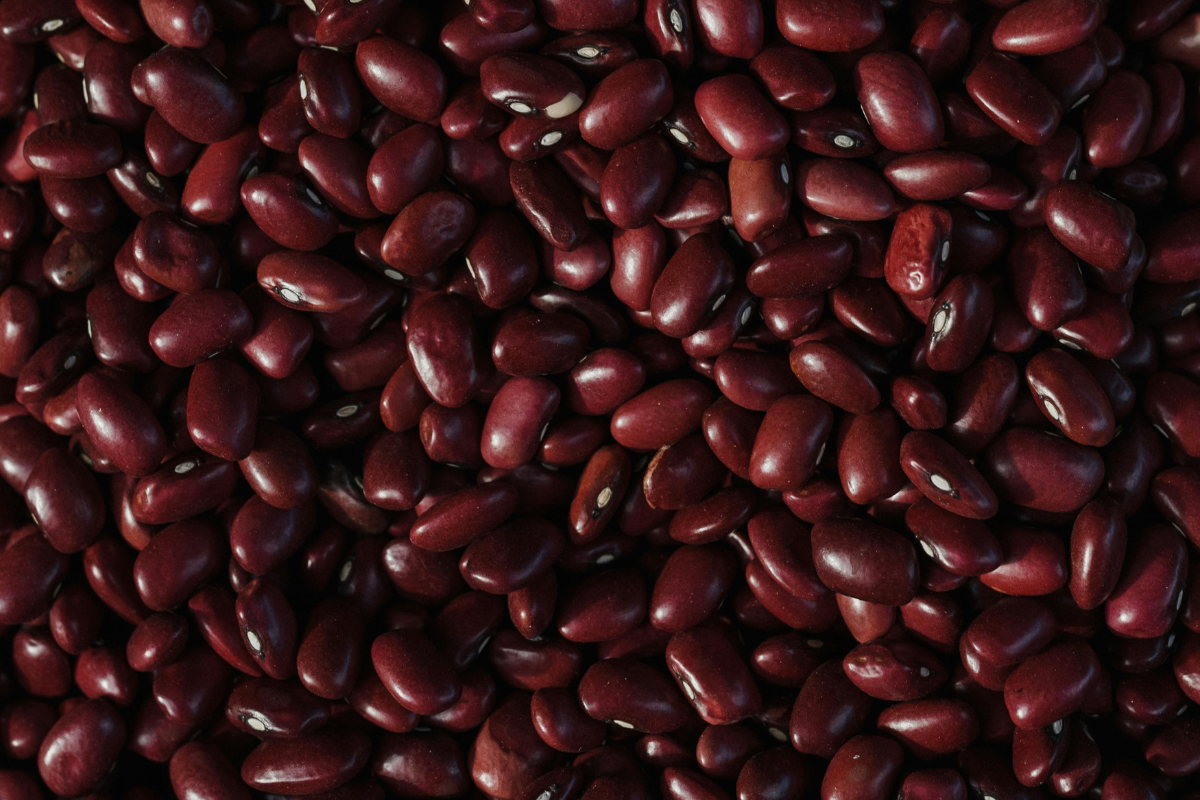16
December
2024
Even if we stopped all emissions from fossil fuels today, those from food production alone would leave us with precious little room to keep the earth within a 2°C temperature rise.
In 2024, this troubling fact has gained more attention than ever, and the reaction to it is gaining momentum.
A crucial way to achieve a healthy, affordable and sustainable food system for everyone is to shift some protein consumption from animal to plant-based proteins - the protein transition.
Here, concentrating on the countries Madre Brava is most active in, we look at some protein transition moments which caught our eye in 2024 - from supermarket action to an extraordinary report from Europe's most prestigious agricultural college. And we predict what 2025 has in store.
Private sector trailblazers
While some national governments and regulators boosted the protein transition this year (more of that below), private sector actors were not waiting for them to lead.
Supermarkets play an outsized role in the protein transition, shaping both consumer behaviour and supply chains. This year has seen major commitments from leaders and plenty of plant-based progress.
In Germany, Aldi-Süd measured, for the first time, the split of plant vs animal products across their full food range. And Lidl in Germany became the first supermarket to offer a basket of plant-based goods which was cheaper than its animal based alternatives. Rewe was not far behind. Price is one of the key barriers to consumers actively looking to replace some meat and dairy with tasty plant-based alternatives, so this was a significant moment.
There was a milestone for Lidl in the UK, too, as it became the first retailer in the country to commit to a ‘protein split target’, announcing it was aiming to make 25% of the protein it sells as meat, poultry and fish plant-based by 2030. That’s up from 14% in 2021.
Meanwhile, in the US, Walmart’s largest private label launch in 20 years had plant-based products front and centre. The retailer’s Bettergoods label was one of the fastest growing in the country this year.
Back to Germany, where biotech company Infinite Roots announced in January it had attracted US$58m of funding towards its work fermenting mycelium as a core ingredient for alternative protein products. The company, which claims: ‘we do not want an expensive niche product. We want to change the world,’ said this was the ‘largest investment in mycelium in Europe’ at the time.
And in a notable development in the fast food sector in the country, Burger King made all of its plant-based options cheaper than animal-based products.
From the US came the news that amusement parks are offering more vegan and vegetarian options. "Plant-based diets are increasingly popular worldwide, and in some regions, they’re rapidly becoming mainstream," a spokesperson for the International Association of Amusement Parks and Attractions (IAAPA) shared with Food & Wine.
The association pointed to data from the Good Food Institute’s analysis of U.S. retail sales, which showed that between 2017 and 2023, sales of plant-based foods jumped from $3.9 billion to $8.1 billion.

Education, education, education
Some intruiging developments in the US showed how innovative approaches could help students adopt plant-forward diets.
School systems are offering more plant based options. A report from Friends of the Earth found that among California’s 25 largest school districts, more than half—56 percent—of middle and high school menus now have daily vegan options, a significant jump compared to 36 percent in 2019.
Sodexo, in collaboration with the Better Food Foundation and Food for Climate League, has expanded its DefaultVeg strategy to nearly 400 university dining halls, serving 1 million students daily. This initiative uses behavioral nudges to encourage plant-based eating by offering default plant-based meals alongside optional meat-based dishes.
The company cited a peer-reviewed study, conducted during the pilot at Tulane University, Lehigh University, and Rensselaer Polytechnic Institute, which showed a 58.3% increase in plant-based meal selection on plant-based default days, without impacting student satisfaction.
And there were strides in public education in Europe.
Nutritional guidance helps shape the conversation about healthy and sustainable diets, inform the public, and can guide government policy.
In Germany, a Citizens’ Council for ‘Nutrition in Transition’ put forward nine recommendations in February. Measures around labelling and tax that the group proposed would help people adopt a more plant rich diet.
A month later, non-profit the German Nutrition Society published its ‘11 recommendations for everyday eating’. Their key message? More plants, fewer animals - for health and the environment.
What did governments do?
The government-sponsored UKRI announced in the summer a National Alternative Protein Innovation Centre in the UK, started with funding from UKRI, the Biotechnology and Biological Sciences Research Council (BBSRC) and Innovate UK.
It said: ‘Spanning the entire alternative protein supply chain, the centre will foster innovation across a variety of protein sources, from plant-based proteins and lab-grown meats to protein-rich algae.’
In Thailand, the Trade Policy and Strategy Office, under the Ministry of Commerce, published a 10-year roadmap to make the country the hub of ingredients for healthy, sustainable foods, alongside six policy recommendations. The recommendations included allocating resources for research and development of plant-based products and expanding the domestic and international market for plant-based food.
Also in Thailand, the Office of National Higher Education Science, Research and Innovation (NXPO), under the Thai’s ministry of Higher Education, Science, Research and Innovation, announced a commitment to boost the sale of plant-based alternative protein by committing to serve 30% plant-based meals at its event and conferences.
At the other end of the equation, in Denmark, the world’s first tax on agricultural emissions came into force. While it came in for some criticism, it was a remarkable example of cooperation between political parties, farmers, unions, environmental groups and industry when it comes to lowering emissions from food production. The country’s minister for climate, energy and utilities, Lars Aagaard, was quoted as saying it could act as a model for cooperation elsewhere in the world.

What did we learn about the protein transition?
This year also brought greater understanding of the huge benefits to economies and the environment of the protein transition, as well as the challenges facing those driving the change.
One bombshell report out this year was not just remarkable for what it said, but for who was saying it. Europe's top agricultural academic institution, Wageningen University was unequivocal about the need to reduce livestock numbers and shift to plant-rich diets to tackle climate change and increase food security.
That’s Wageningen University, not a green NGO.
Unless we reduce herd size significantly, there is simply not enough land in Europe to grow all the crops needed to feed those animals, the Wageningen report argues. Of all the plant crops produced in the continent — for food, feed, textiles, wood, biofuels and bioplastics — 60% go to feed livestock.
Governments and retailers have to support consumers to make healthier and more sustainable food choices. "The hesitation to intervene in our food choices stands in stark contrast to the commonly accepted use of pricing strategies to reduce demand for [fossil] fuels, as well as tobacco and alcohol,” the Wageningen report stated. “Interventions are needed to support consumer behavior toward more healthy and sustainable diets.”
The Food System Economics Commission published its global policy report in January.
Its strong message was that food systems transformation was ‘urgently needed, possible, and offers enormous economic benefits’.
The report estimated a net benefit of around US$10 trillion, taking into account the reduction in hidden costs to human health, the environment and incomes, and the cost of the transformation itself.
The Triple Gap in Finance for Agrifood Systems emphasised the distance between current investment and what is needed to transition agri-food systems to a 1.5oC Paris-aligned pathway.
In July, Madre Brava released our assessment of the 15 largest European supermarket chains’ climate and diet shift ambitions. The analysis showed all retailers had a target in place, or would set one by the end of the year, to reduce emissions from the food they sell. Half of these emissions are driven by two food categories alone: meat and dairy.
In November we revealed that Thailand could create more than a million additional jobs, add billions of dollars of economic value to its economy, and cut emissions by millions of tonnes per year by shifting 50% of meat and seafood protein production to plant-based by 2050.
The report, with Asia Research & Engagement, highlighted the opportunities open to Thailand to benefit from the protein transition and become the ‘Kitchen of the Future’.
And The New Merchants of Doubt: How Big Meat and Dairy Avoid Climate Action from Changing Markets Foundation uncovered the tactics of big meat and dairy to avoid action on climate change, akin to those adopted by the tobacco and fossil fuel industries.

What will 2025 bring for the protein transition?
Our predictions for 2025 centre around retailer commitments, international events and more on nutrition.
Retailers which have already made partial protein split commitments in Europe, covering some of their countries, will extend these to other countries on the continent.
We’re expecting the EAT-Lancet Commission to publish more research next year. The Commission’s update should highlight the wealth of evidence that has emerged since 2019 to support its Planetary Health Diet.
Whilst we’ll see continued investment in novel proteins in particular precision fermentation - we’ll hear more about the critical importance of wholefoods in the protein transition as well as how we ensure meat and dairy analogues continue to offer more than animal proteins in terms of nutrition, especially when it comes to levels of processing and fat/salt /sugar content.
The Belem COP in Brazil will put a heavy focus on the role of protecting forests and biodiversity to mitigate climate change, shining a spotlight on companies most responsible for destroying nature, particularly to support industrial livestock production.
Brazil is in a good position to accelerate the food system transition, and has incentive as it houses the Amazon rainforest and Cerrado savannah. Around 60 percent of Brazil’s GHG emissions are from agriculture and land use change, so the food system transition is likely to be higher on the COP30 agenda than previous COPs.
Madre Brava will continue to catalyse the protein transition, with bold strategies, partnerships and research in 2025. Follow us on LinkedIn and Bluesky for updates throughout the year.



.png)